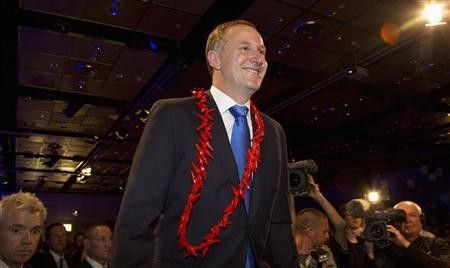Labour Looking For A Makeover With Change in Leadership: David Cunliffe Defiant

Licking the wounds of a worst defeat in New Zealand polls, the Labour Party led by its newly elected MPs, is seeking a course correction including a change in the current leadership. A seven hour fiery caucus meeting last Wednesday saw Labour MPs very uncompromising on change of leadership, reported TVNZ.
Parliamentary party leader David Cunliffe was in no mood to quit and he wanted the party to consider a "number of issues". However, ample hints were out from Labour MP Chris Hipkins, about a possible vote of no confidence against Cunliffe. The MP premised the mood of the meeting, when he said it was a good meeting though it was tough. People want time to reflect on that, Hipkins noted.
Looming Uncertainty
Parliamentary party leader David Cunliffe has signalled his intention to stay. But the party caucus has many ideas. According to the constitution of Labour, within three months the current leader Cunliffe has to seek the endorsement of the caucus. If he loses the support of 60 per cent + 1 of Labour's MPs, there will be election to the leadership. That will involve the wider party membership (primary), affiliated unions and the caucus.
Cunliffe enjoys support outside the caucus and may carry the day. But the prospect of a Labour leader at the helm with no support among a majority of MPs will be a recipe for trouble in the years to come. .
No contenders are in sight. Denying all speculations about a leadership race with Cunliffe, deputy leader David Parker has ruled out his candidature for the Labour leadership.
Dilemma in the Open
The Labour Party's existential dilemma was recently discussed in a political piece that appeared in "Conversation". It traced the decline of Labour Party, from being a dominant force when it came to power in 1935. But last Saturday's general election was pathetic for it. With 24.7 per cent of the vote share, Labour showed its worst ever performance since 1922.
This was the third consecutive election in a row that the party was losing support. The last victory was in 2005, when Helen Clark secured 41 per cent of the vote. Labour is caught in a cleft between modern social democratic party enthusiasts and those wanting a frontal assault on neo-liberalism.





















